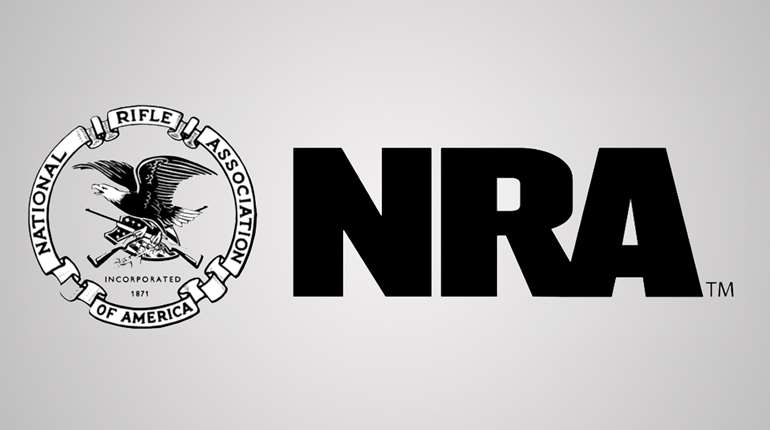
What does it mean to be a courteous and ethical hunter? Most all of us were raised to follow the Golden Rule: Do unto others as you would have them do to you. This same rule applies to all those who own firearms and who hunt. It is our duty to maintain a high level of responsibility and respect any time we are around firearms. We have a responsibility not only to ourselves, but to all those who are around us.
An ethic is an unwritten rule for the way we behave and act when no one else is watching. It is the personal standards by which we were raised, and the code by which we live each day. Everyone has their own unique set of ethics and morals. A good way to “check” your ethics is to ask yourself, “What would my (fill in the blank: _____ mom/dad/grandmother/grandfather, etc.) think or say if they saw me right now?” If the person you most respect does not approve of your actions, it is a time to reflect on the ethics of your actions.
If you surround yourself with people who make good choices and decisions, you are more likely going to model that behavior of good choices and decisions. Likewise, if you have a high set of standards, good decision-making skills and positive ethics, those around you will also reflect your behaviors.

Ethics can also differ from north to south, west to east, and vary depending on your cultural upbringing. Even though something may be completely legal, your ethics may drive you not to do it because you do not feel it is right. For example, if it is completely legal to shoot a dove sitting on a tree branch in the area where you are hunting, (with a safe background, appropriate firearm and ammunition, during dove season and with all proper licenses and stamps for your location), the question of ethics comes into play if taking this shot falls within your ethical parameters?
For a first-time hunter, especially a young person, taking this shot may be perfectly acceptable. The young person will build confidence and develop skills with a close-range shot. By successfully adding to his or her bag limit, the desire to continue hunting for more doves will continue to grow. For an older, more experienced wingshooter, this shot may not be ethically acceptable to him or her. If someone has been hunting for a long time, this shot may seem too easy and not “sporting” to the dove or to the hunter. Although perfectly legal, a more proficient hunter may pass this shot because it was not ethical to him or her.
As one grows in shooting skills, their level of ethics also grows. Ethics can grow and mature just as the hunter and shooter grows and matures in their sport. Like the 10 rules to firearm safety, there are also ten rules to follow for good ethical behavior and ethical hunting.
ALWAYS obey all federal, state, and local laws while hunting or target shooting.
It is your obligation as a hunter to ensure you have the proper hunting license and tags for whichever species you plan to hunt. Each state, province and country have different rules, means and methods for different animals. Make sure you know exactly where the property lines are drawn. Depending on your location, the fines can be very expensive if you unintentionally trespass. Always make sure you have permission, even better, written permission. Ignorance is no excuse for the law so make sure you begin you research in plenty of time prior to your trip.

ALWAYS take time to practice shooting throughout the year to improve shot placement and avoid wounding game.
You owe it to the game you are hunting for a quick and clean kill. Many deer hunters do not think about sighting in their rifles and practicing at the gun range until the fall, when deer season opens. Too many hunters go to the range just prior to their weekend hunting trip and that is certainly not enough time to practice before the season opens. The same can be said for wingshooting. A lot of hunters do not take the time to practice shotgun games like trap, skeet, or sporting clays to improve their shotgun shooting skills prior to waterfowl season or upland game season. The only way to improve your skills and techniques is to continue practicing throughout the entire year at a range. This not only increases your confidence in your shooting skills, but also significantly reduces wounding to the game you are hunting because you are becoming more proficient in your shot by consistent practice.

ALWAYS maintain your equipment and clean your firearm for safety so it functions properly.
Every time you shoot your firearm, carbon, lead, copper and plastic (if shooting a shotgun) leave residue in the barrel, chamber and action. Each time you shoot, more of this residue builds up. Additionally, moisture due to weather conditions or sweat can cause corrosive rust to damage your gun’s metal parts. This built up over time can impact a gun’s reliability.
It is impossible to find ammunition that will not leave residue in the barrel of your gun. A dirty gun causes many malfunctions. Learn the proper way to load, unload, and clean your firearm. Regularly maintain your firearm so it remains in good working condition and is safe to operate. A properly operating firearm can significantly reduce wounding game by increasing the accuracy of bullet placement.
ALWAYS respect the rights and property of landowners.
Sportsmen represent both liability and benefits to the landowner. Gates not left the way they were found; livestock accidentally injured or killed; and damage to fences, property and roads are just a few examples of landowner concerns. With a little effort and ethical behavior, sportsmen can tip this balance in their favor and present more rewards than risks to landowners.

Always communicate with the landowner before and after a visit to the property or a hunting trip. Respect the rules set forth by the landowner, pay attention while driving on property, as to now disturb any plantings or agriculture the landowner may be growing, and stay on ranch roads or pavement, unless given permission to do otherwise.
Always keep a watchful eye while on property for anything that needs repair such as a broken fence, cracked guest house door, busted water line, or loose livestock. Report any issues to the landowner immediately. Offer your assistance to help with property chores. Continually pick up trash even if it does not belong to you.
When hunting season is over, remove your hunting blinds or any other items you placed on property. It is a good gesture to connect with your landowner throughout the year and if you harvest any game, offer to share some of the meat.

ALWAYS clean up after yourself, including spent shells and cartridges.
We cannot control what everyone else is or is not doing, but we can make a difference with our personal actions. Leaving any area better than we found it is a golden rule outdoor enthusiasts should follow. This applies to a day at camp, at the shooting range, or while hunting. Carry out everything you carry in, plus more. Always pack trash bags in your backpack or range bag to collect all trash, even if it is not yours. This benefits the land, property, and landowner. By continually practicing Leave No Trace etiquette, you are setting a good example for all who surround you.
ALWAYS wait for a good, clean, safe shot at all game intended for harvest.
Every hunter wants to bring home the game they are pursuing. A true sportsman makes every effort to cause the least amount of suffering with a quick and clean kill. To achieve this, the hunter must study and understand the anatomy of the animal they are hunting and learn where the best shot placement is.
The most lethal shot is to the animal’s vital organs: heart, liver and lungs. In most game animals, these vital organs are in the chest cavity, just behind the front shoulder. If you do not have a clear shot to the vital organs, wait until the animal moves. Be patient to ensure you take a clean shot and minimize suffering to the animal. Strive for a quick kill to the vital organs, ideally while the animal is standing broadside.

ALWAYS take a shot only at game that is clear of other animals—never shoot into herds, flocks, or groups of animals.
Always make sure you have a clear shot, with no other animals standing behind your intended target. A bullet does not always stop at your target and can pass through and hit an unintended object or another animal. Pay attention to what lies beyond your target and there is a safe area for the bullet to travel.
Always identify a single duck, goose or dove in a flock. If one shoots into the flock of birds, chances are high there will be several wounded. Focus on only one target and wait until you have a clean and clear shot to hit only that one target.

ALWAYS make every effort to retrieve all harvested game and wounded animals.
It is the hunter’s responsibility to make a quick and clean shot. If you are hunting with a bow and arrow, it is best to wait at least one hour after your shot to give the animal time to eventually stop and lay in one spot. If you are hunting with a rifle, shotgun or pistol, it is best to wait at least 30 minutes. If you immediately begin tracking the animal, looking for a blood trail and moving in the direction the animal traveled, you are “pushing” the animal to keep moving and it may become more difficult to track. Oftentimes, a blood trail is harder to follow when the animal continues moving forward.
ALWAYS respect the general public, non-hunters, and even anti-hunters.
Just as you have a responsibility to the animal you hunt, you also have a responsibility to uphold your image as a hunter. Not everyone you encounter during your hunting trip supports hunting. Respect their opinion and not be a disrespectful sportsman. Every time you put on your “uniform” of camouflage and blaze orange, you represent a proud segment of the hunting population. We always want to put hunting in a positive light by showing respect to everyone we encounter. Showing respect when stopping for fuel or sitting down for lunch and talking about the hunt. Be mindful of those around you, making sure you are not using graphic words to describe your hunt. Words like “weapon, slaughter, blood and guts,” etc. can turn a non-hunter into an anti-hunter quickly. By respecting those who surround you, as well as the animals you hunt and respect for yourself, you are doing your part to ensure the future of hunting continues.
ALWAYS set a good example as an ethical hunter while engaged in hunting and while traveling to and from hunting lands.
Just because something is legal does not mean it is always ethical. Always leave the area better than you found it. If you notice litter on the ground, pick it up even if it is not yours. Carry extra bags in your backpack so you always have a way to dispose of trash while along the trail or in the field. Always leave gates the way you found them, and ask the landowner his or her property rules. By taking care of the land where you hunt, those you interact with, and the animals you are hunting, you are setting high ethical standards for all who know you as a hunter.















































